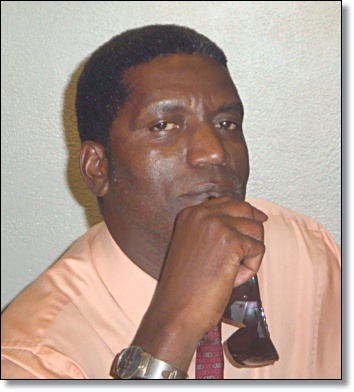Neo-Liberalism: Blight or Blessing?

 |
| Rejoice Ngwenya |
According to Wikipedia, neo-liberalism is used “to describe an internationally prevailing ideological paradigm that leads to social, cultural, and political practices and policies that use the language of markets, efficiency, consumer choice, transactional thinking and individual autonomy to shift risk from governments and corporations onto individuals and to extend this kind of market logic into the realm of social and affective relationships.” So what is it about such ideology that African intellectuals find revolting?
Whenever habitual critics of liberalism are sobered down to rational debate, one gets horrified that their paranoia is founded on populist conjecture rather than facts. Such critics, given a chance, would slide into gluttonous self-abandonment only equal to those they label as ‘capitalist pigs’!
If you are African, and you consider as repulsive the brand of economic models that sent countries of Julius Nyerere, Kenneth Kaunda and Robert Mugabe to the gutter, you are a liberal like me! Liberalism is, at least from a simplistic world view, a natural instinct of true democrats. Those who resent a life of excessive state control, rabid public expenditure and populist subsidies; and who love to choose goods and services in an open market, believing that individual liberties are supreme - are on my side of the liberal ideological divide.
Fine, all types of economic systems are susceptible to failure yet critics of neo-liberalism from ‘troubled’ African countries would rather do exile in ‘liberal’ Europe than ‘socialist’ Cuba. Classical hypocrisy! In South Africa, ANC party hardliners who want to rub hot pepper on political competitors first accuse them of ‘neo-liberal’ tendencies. If you really wanted to be accepted in the circle of the ‘concerned social beings,’ the fashionable thing is to label someone a member of the ‘neo-liberal’ Democratic Alliance. Simply because the DA is ‘led by a white,’ there is very little effort required to disown us African liberals as agents of ‘Apartheid imperialism’!
In Zimbabwe, liberalism is associated not only with social injustice and collapse of social service infrastructure, but also corporate failure. The ‘hottest’ case at the moment is the imminent demise of ReNaissance Merchant Bank largely due to corrupt bad governance. As a liberal, I insist that free market economy laws take precedence and 'allow' this bank to close before the contagion of incompetence spreads. Going the ‘Obama route’ of dispensing public funds to bail out blatant greed is blight to liberal ideology.
Adam Haupt, a Mail & Guardian blogger recently wrote: “If it [DA] wants to claim that it has broken with its racially divisive past, then it should take a long and hard look at its own neo-liberal economic policies.” He continues: “The real way to build an inclusive society is to ensure that all people are involved in securing social justice. You cannot leave it to the market to generate a better life for all...”
According to this Haupt school of thought, neo-liberalism is a scenario where heartless free market policies isolate the poor blacks, abandons them to suffer in silence, discarding them to endure the vagaries of white capitalist greed! This is the tragedy with so-called African ‘liberation scholars.’ They are purveyors of radical activist paranoia that drives innocent citizens towards leftist dogma with senseless accusations of an ideology they choose to misunderstand.
State-run companies Zimbabwe Electricity Supply Authority, National Railways Zimbabwe and Zimbabwe Mining Development Corporation are basically bankrupt. People of Matebeleland and Manicaland are persistently mourning how Harare has ‘centralised’ every aspect of national governance thus resulting in ‘marginalisation.’ If you strongly feel that citizens in those regions be allowed to exploit and distribute their own local resources, you are a liberal like me who believes in devolution.
Human rights activist Elinor Sisulu once said: "South Africans must take note from Zimbabwe that media freedom is not just a liberal democratic notion, but a matter of life and death." Progressive Zimbabweans are mourning about ZANU-PF’s hegemonic hold on public media. Zimbabwe boasts some of the most repressive media laws in the world, with no local private radio or television station. And so if you strongly feel citizens must be free to operate their own local broadcast networks, you are, after all, neo-liberal like me!
By Rejoice Ngwenya
Coalition for Market & Liberal Solutions "COMALISO"
